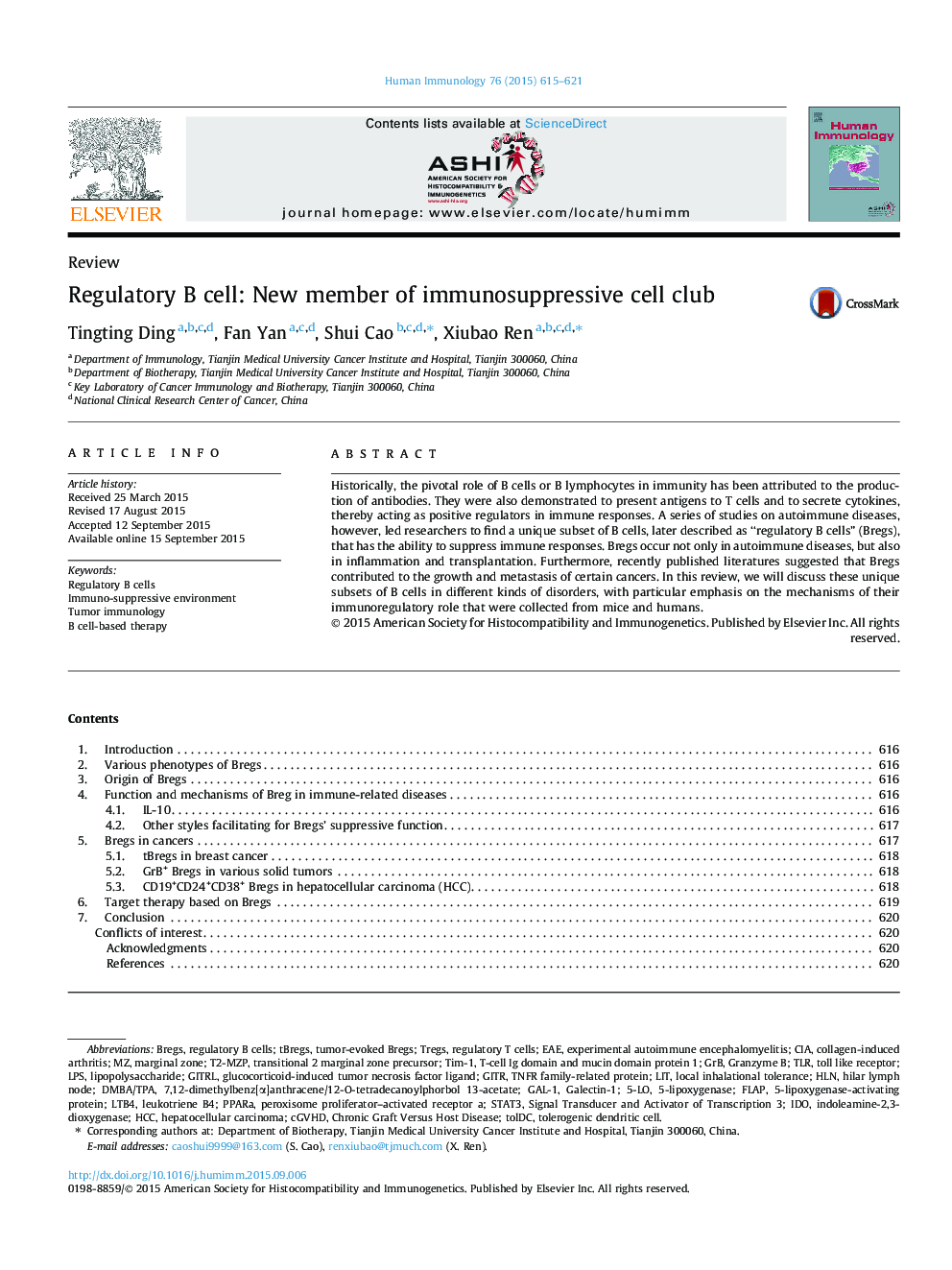| Article ID | Journal | Published Year | Pages | File Type |
|---|---|---|---|---|
| 3349758 | Human Immunology | 2015 | 7 Pages |
Historically, the pivotal role of B cells or B lymphocytes in immunity has been attributed to the production of antibodies. They were also demonstrated to present antigens to T cells and to secrete cytokines, thereby acting as positive regulators in immune responses. A series of studies on autoimmune diseases, however, led researchers to find a unique subset of B cells, later described as “regulatory B cells” (Bregs), that has the ability to suppress immune responses. Bregs occur not only in autoimmune diseases, but also in inflammation and transplantation. Furthermore, recently published literatures suggested that Bregs contributed to the growth and metastasis of certain cancers. In this review, we will discuss these unique subsets of B cells in different kinds of disorders, with particular emphasis on the mechanisms of their immunoregulatory role that were collected from mice and humans.
